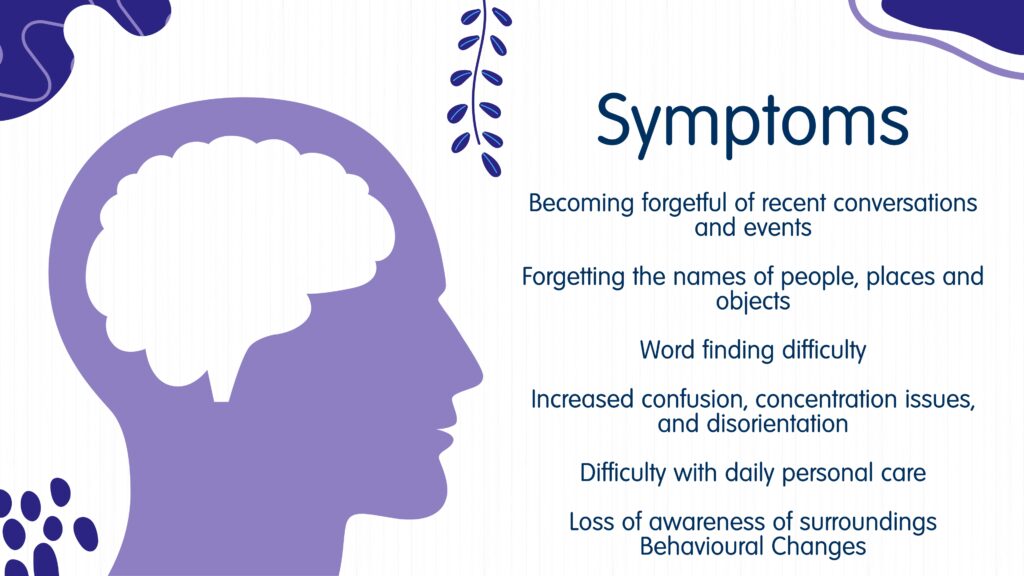
What is Alzheimer’s?
There are currently estimated to be 982,000 people living with dementia in the UK and this is projected to rise to 1.4 million in 2040 (Source 1).Alzheimer’s disease is the most common type of dementia that can affect memory, thinking, and behaviour and can have significant impact on daily tasks that sometimes are taken for granted.
Alzheimer’s Symptoms
Alzheimer’s disease may be subdivided into early onset, late-onset , mixed and unspecified. The symptoms are varied for different people . Some of the more common symptoms and warning signs of the disease may include:
- Becoming forgetful of recent conversations and events
- Forgetting the names of people, places and objects
- Word finding difficulty
- Increased confusion, concentration issues, and disorientation
- Difficulty with daily personal care
- Loss of awareness of surroundings
- Behavioural Changes

Alzheimer’s Disease Causes
Alzheimer’s disease is thought to be caused by the abnormal build-up of proteins in and around brain cells.
Factors that may contribute to developing AD are:
- Genetics
- Environmental
- Lifestyle choices
One well-known gene that influences Alzheimer’s risk is the apolipoprotein E (APOE) gene. The APOE gene is involved in making a protein that helps carry cholesterol and other types of fat in the bloodstream. Problems in this process are thought to contribute to the development of build up of proteins and Alzheimer’s.
Alzheimer’s Disease Treatments
As research continues into Alzheimer’s disease many medicines have been developed which can help manage symptoms from mild to severe Alzheimer’s disease. To gain greater awareness and understanding, identifying more people at an early stage of Alzheimer’s disease is crucial to finding better medicines to manage the disease into the future. Booking an appointment at your GP can be a positive first step when you are worried or have signs of Alzheimer’s disease. Memory tests can be performed to find an Alzheimer’s diagnosis. Early detection of Alzheimer’s disease can have many benefits such as helping to reduce stress about developing symptoms and finding the time and opportunities to find the correct support.
Clinical trials play a vital role in shaping the future of Alzheimer’s diagnosis and treatments.
Get Involved
NeuroClin can provide support if you wish to take part in clinical trials. We have a range of clinical studies for varying stages of the disease.
To learn more please contact NeuroClin and become a part of Alzheimer’s Research.
Contact Information
Telephone : 0141 9480206
Pre-Screener : Alzheimer’s Pre-Screener
Sources: